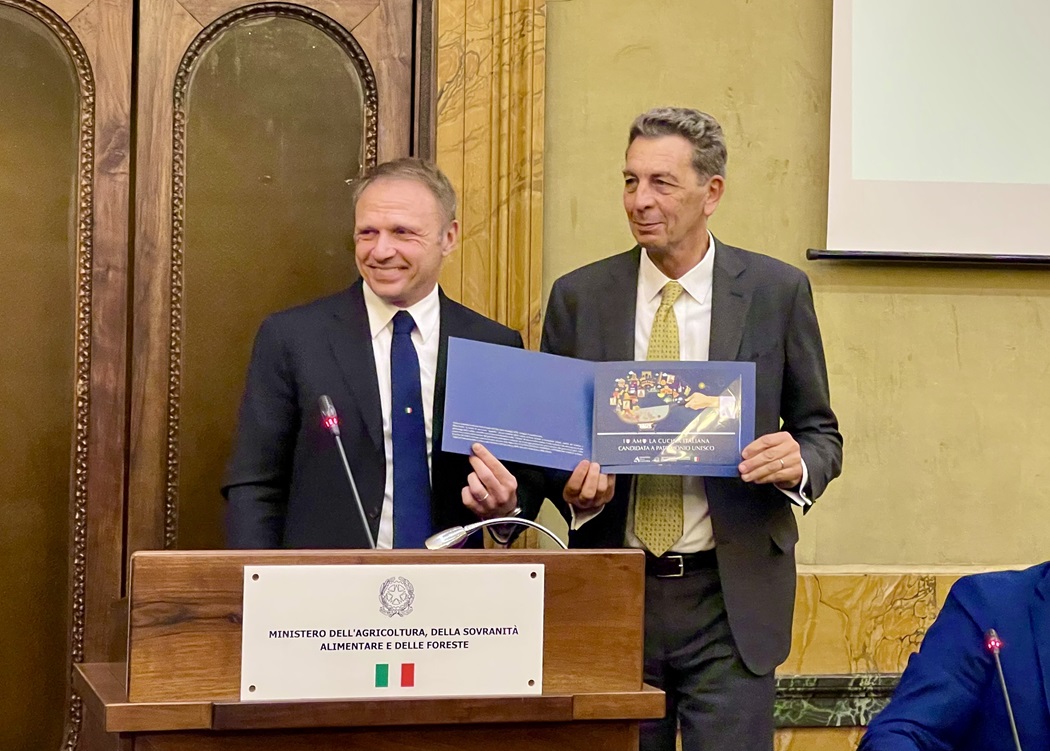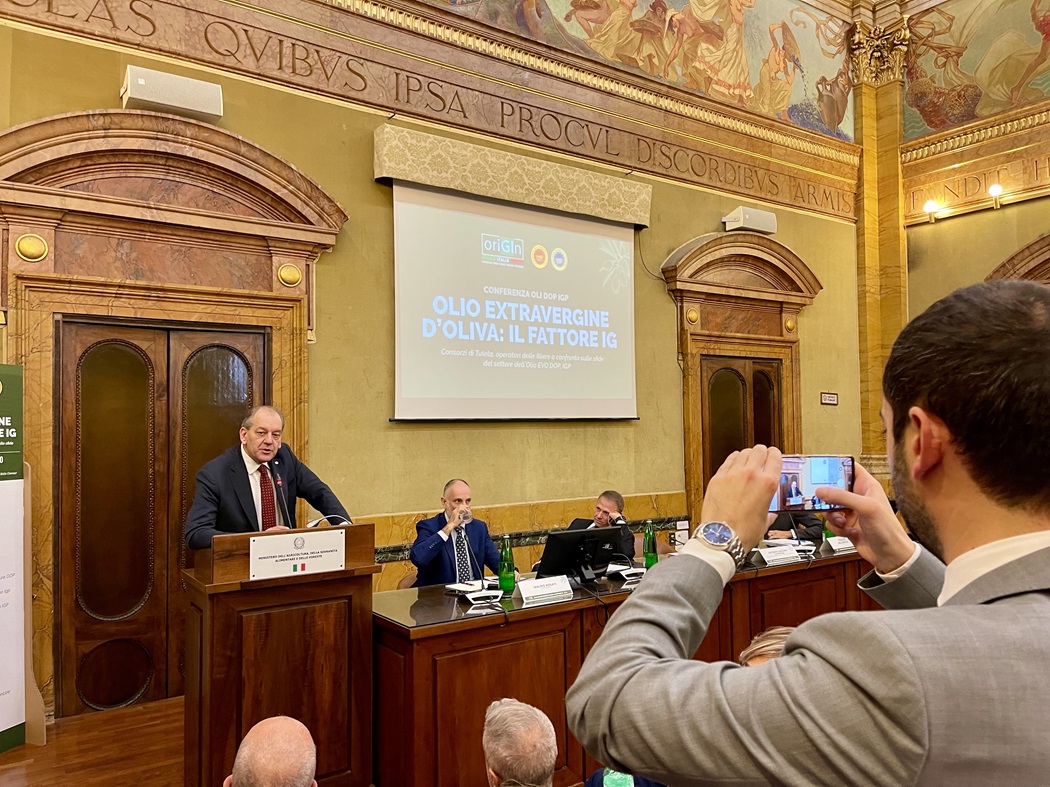This week we received a request from a group of young Chinese high school students, who are coming on a trip to Italy, to come and visit the company and do a tasting of EVO oil (ours is a rosciola monocultivar) and to learn to make pizza and tiramisu.
Perhaps due to this coincidence, when I saw the conference on the 'GI- Geographical Indication factor of EVO Oil', organized by Origin Italia at the Ministry of Agriculture, it immediately struck me. The Cavour room was beautiful and completely filled of people given the importance of the theme.
The last climatic season, then, led to a decrease in production in North Africa and Spain which increased the cost of oil to the final consumer. It has finally given us dignity but for small producers the oil can offer other opportunities and we were able to understand its power precisely with the tastings carried out with Swedes, Belgians and soon Chinese.
The event began with a report by Maria Chiara Zaganelli of ISMEA on the DOP Economy, which will then be presented on 8 December in the complete version, with surprising numbers. We are together with 650,000 companies that produce oil and of these 61% manage less than 1 hectare, and I can say that we are in an area of olive groves but all my neighbors collect olives only for personal use and do not think beyond their consumption or that their plants are of landscape value.

In Italy, then, there are 4,300 oil mills (and here is a small note on the costs of the certified organic oil mill, so despite the vast choice of oil mills around us, to have a certified one we have to travel too many kilometers and we have given up).
Despite these numbers, only 4% of production is GI certified and it is no coincidence that almost all of this is concentrated on 3 GIs in Puglia, Tuscany and Sicily which are also the Italian areas with the greatest tourist vocation. Most of the oil is purchased by tourists or sent abroad, especially to the USA.
And since I returned from a weekend from BITEST - International Experiential Tourism Exchange with our DMO Alta Ciociaria, I can confirm that the OIL-TERRITORIES relationship has great interest from national and international tourism operators.
In fact, another interesting data from ISMEA is that if on the one hand we export a lot of quality oil, on the other we purchase it and in the balance of payment we are in deficit. And I didn't understand how all the oil produced by my neighbors for family use is counted.
Almost all the interventions underlined the importance of communication, of communication capable of enhancing our local cultivars to increasingly link EVO oil with the territory of origin.
I found myself very much in the words of Tommaso Loiodice of Unapol and Alfredo D'Antini of the Città dell'Olio association who experience our same needs first hand. At the end of the first part, the undersecretary Patrizio La Pietra, who is responsible for olive growing, spoke about a forthcoming National Olive Plan and the strong link between the agricultural economy and the agricultural landscape, and we know this well because it is which is requested by all those who want to visit the company and buy a piece of Italy by meeting the producer directly.

After a conference exceptionally managed by Mauro Rosati, director of Origin Italia, with precise, timely and concise interventions in their presentation, the closures were made by the minister Francesco Lollobrigida who participated in all the morning's work.
The minister began with a philosophical distinction between people and consumers: perhaps consumers are those who buy products without identity, but it is the people who choose and decide what and from whom to buy. The Italian agricultural world, especially that of small and micro-businesses, is aimed at people and we know this well because people are increasingly looking for personal contact and want to stay in touch with us.
Another important issue is labeling and Nutriscor which penalizes Italian production, for example our EVO oil would have an orange band which can instill fear in the consumer, and which certainly does not enhance the health properties of our oil.
The closing was dedicated to the candidacy of Italian cuisine as a UNESCO intangible heritage. Toady only Mexico, Korea, France and Japan have this recognition, while the Italian one is certainly the most famous with over 250,000 Italian restaurants in the world that promote it and are the true ambassadors of the Italian Lifestyle.
Minister Lollobrigida handed over a plaque with the symbol of the Italian candidacy to all the participants while the kids from two hotel schools in Rome prepared the tasting of oil and Italian products in the beautiful setting of the ministry's atrium.










Follow us